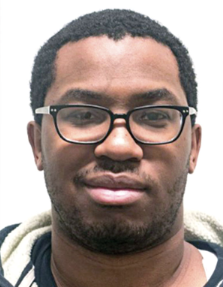 Why do we portray atheists as broken believers?
Why do we portray atheists as broken believers?
Mickey won the $1,000 Paul J. Gaylor Memorial Student Activist Award, endowed by Annie Laurie Gaylor in memory of her father. Mickey, a student at NYU’s School of Law, wrote a strong defense of nonbelievers for his student newspaper, Washington Square News on Sept. 19, 2018. It is republished with permission.
By Mickey Desruisseaux
One of this fall’s new TV shows is CBS’s dramedy “God Friended Me,” the premise of which is exactly what the title suggests. An aggressively atheistic
podcaster named Miles (Brandon Micheal Hall) accepts a friend request on Facebook from the big guy upstairs.
‘God’ starts suggesting more friends for doubtful Miles to add, whom he starts running into almost immediately afterward in real life. Each of them has problems that Miles seems uniquely attuned to solving, and each, in turn, seems to possess a quality that can teach Miles something about the world around him. But while the schmaltzy premise is surprisingly well executed, the pilot episode ends up reinforcing a paradigm in which belief is viewed as the norm, disbelief as an aberration and atheists as errant members of the flock waiting for a shepherd to guide them home.
It turns out that, as the son of a pastor, Miles was a devout child until his mother was diagnosed with terminal breast cancer. He prayed endlessly for God to cure her, only for her to die in a car accident after making a miraculous full recovery. The tragedy shattered Miles’ faith and his relationship with his father, pushing him into becoming the oh-so-sour atheist he is today. I nearly chucked my laptop across the room, before remembering that in the real world, exaggerated displays of exasperation are pretty expensive.
In a vacuum, this wouldn’t be a bad storytelling decision; I’ve known a few people in my life who’ve lost their faith for similar reasons. But when you consume enough media, you start to pick up on some of the tropes that keep rearing their heads regarding vocal atheists. Atheists are usually smugly lording their supposed intellectual superiority over people of faith, or faux-Nietzschean nihilists hell-bent on world destruction. And while Miles’ depiction as an ex-believer nursing his faith within a cocoon of cynicism is not quite as bad as that, it can be just as harmful, because these dynamics begin to bleed back into the real world and negatively affect people’s perceptions of the nonreligious.
About 10 to 25 percent of Americans identify as atheist, agnostic or otherwise nonreligious. But studies show that the general populace distrusts nonbelievers’ morality. Of the 535 current members of Congress, exactly one identifies as religiously “unaffiliated.” No professed atheist has ever been appointed to the Supreme Court, nor has one ever been elected president. Don’t count on it happening anytime soon, either. Gallup polls have suggested an atheist candidate would enjoy less support than a candidate from any other religious group in the country, even in an age of resurgent neo-Nazis and judicially upheld travel bans that are Definitely Not Targeted Toward Muslims. Americans may not trust believers equally, but we distrust nonbelievers most of all.
But there’s no reason to. No one’s born with an innate knowledge of the catechisms and doctrines underpinning the world’s major religions; it’s something we’re either taught as children or discover and embrace later on. Some people never experience either, and still, others decide later in life that the framework they’re used to no longer suits them for reasons entirely unrelated to a personal tragedy. Either is perfectly fine, and neither is the equivalent of rejecting morality outright. Atheists are no more prone to good or evil behavior than anyone else of any other faith, and evidence suggests that America’s pervasive anti-atheist attitudes make people less likely to express their doubt in the divine.
The marketing for “God Friended Me” claims that it wants to spur conversations about faith without prescribing a concrete answer, and it’s a very worthy goal. It would’ve been better served with a prickly, but still a fundamentally good main character whose atheism was a result of a self-directed reflection on the big questions, and whose possible turn to faith was another step in that journey.
Choosing to root his disbelief in childhood trauma instead feels like a wasted opportunity to showcase that a life without belief in God can be every bit as moral and meaningful as a life with one. It’s very possible that some twists lie ahead for Miles, including whether or not he’s actually been friended by God. But after its first episode, it feels very much like the show is already steering him, and the conversations it wants to foster, in a particular direction.
I’m pulling for “God Friended Me,” in no small part because it stars one of my favorite actors, Joe “Monologue” Morton, as Miles’ estranged father. In an age of hyperpolarized animosity driven in no small part by social media, there’s something comforting about a show that wants to represent it as a force for good and speaks to our better angels. I’ll be back when it premieres to see how Miles’ journey toward Personal Growth™ and quite possibly True Love™ plays out.
Here’s hoping that viewers of all stripes understand that you can find both of those things without being a believer.

